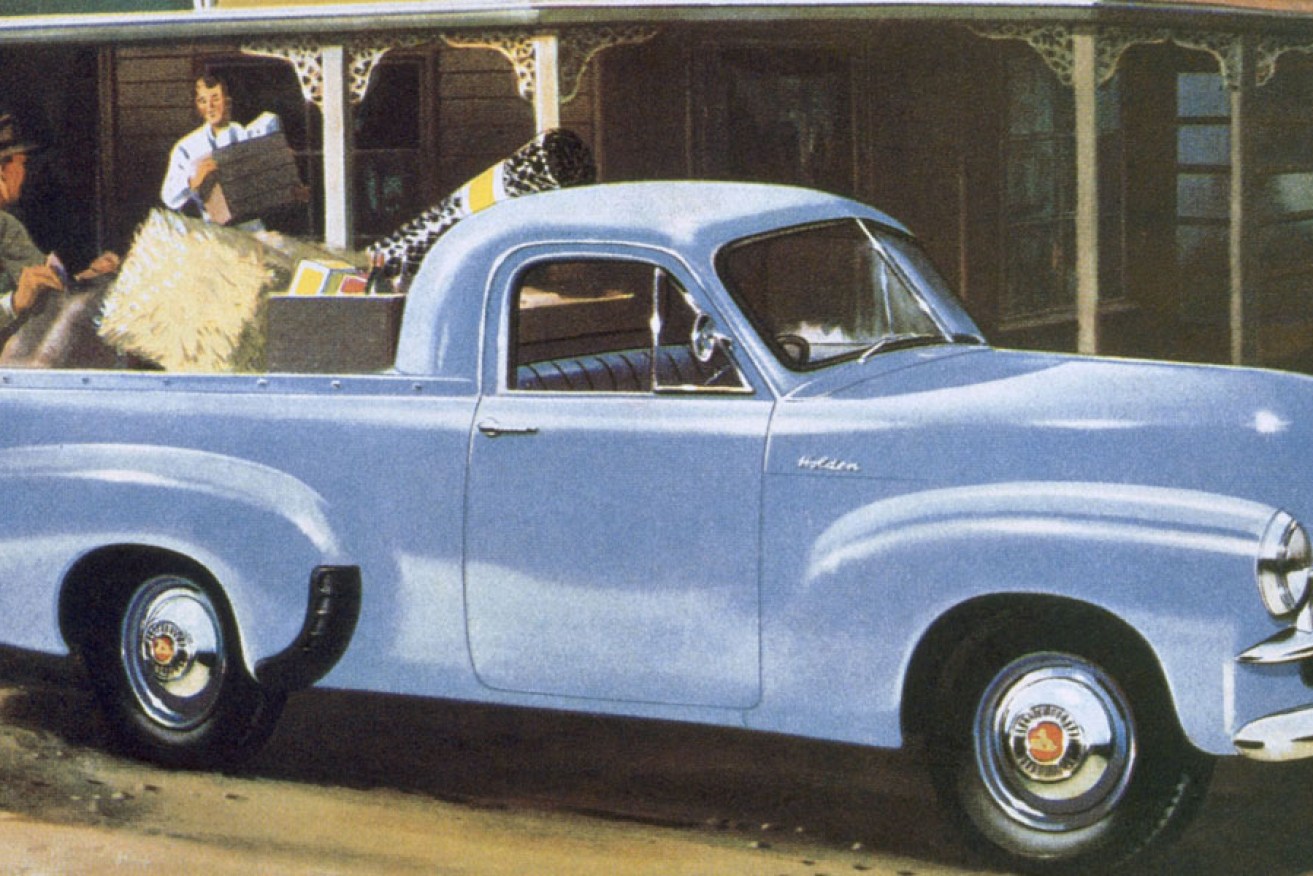It’s been one long con – and the Holden saga is still throwing up a dust cloud as we spin our wheels over the cultural shock of the car maker’s exit.
Re-reading an InDaily story from mid-2010 reveals some perspectives worth re-visiting.
One is that the political commitment to subsidising car production has been a spectacular failure.
Secondly, the “Aussie icon” imagery is a mirage.
Thirdly, the coming shockwaves from job losses in the next four years is a gross over-statement.
READ MORE: Richardson on the political fallout from the Holden closure.
Let’s start with the third perspective. In 2010 we reported that Holden’s move to a new small car platform to run alongside the Commodore platform would re-invigorate the slow erosion of jobs at Holden.
In the story it’s noted that in 2009, Holden employed more than 3,200 people at Elizabeth.
It now employs 1670; so the level of job losses at Holden due in the progressive closure in the next four years has actually occurred in the previous four years.
While there has been an increase in unemployment in SA in the last two years, most of those Holden lost jobs appear to have been absorbed into the economy with few micro-economic shock waves.
The second perspective is the cultural one and it goes back to the interview we did with Holden boss Mike Devereux in June 2010.
The Detroit-based owners of Holden have been playing the Aussie imagery for years and much of it has been based on similar American nationalism campaigns.
As Devereux revealed that day, Holden’s Aussie-ness is just a bit of ol’ American apple pie.
When he sat down for a chat with local media, he asked about the culinary notion of a party pie (which the PR staff had laid out as Holden’s thrifty lunch item).
He was proudly told by one of the motoring writers that the pie, like the Holden, was part of Australian culture.
“The jingle was football, meat pies, kangaroos and Holden cars,” said the proud Aussie hack.
Devereux recognised the jingle immediately.
“Was that your version of baseball, hot dogs, apple pie and Chevrolet?” he asked.
It turned out that the Aussie Holden jingle imprinted on our psyche was an old ad for the General Motors Chevrolet; it was conceived in 1974 and a couple of years later, re-written for use Down Under.
And finally, let’s review the perspective of the political promise and miracle subsidies.
Most journos who have been around for more than a decade can reel off the succession of “we’ve signed the deal and saved thousands of jobs – it’s all good from here” media events featuring Ministers, auto executives and smiling workers.
There was the day they got the workers at Mitsubishi to throw their hats in the air in joy at the tens of millions handed over to save the Tonsley plant.
It had closed before the hats landed.
The most recent was the March 2012 effort at Holden where Federal Industry Minister Kim Carr joined with Mike Devereux and Jay Weatherill for another “we’re saved” event. The money was never paid and Holden actually sacked a few hundred workers shortly after.
In 2009 then-State Treasurer Kevin Foley raved about the prospects of selling thousands of Holden Caprice V-8s to US police forces.
Devereux cleared that up in 2010: “It was never going to happen last year; tenders don’t open until October this year.”
The mass-Caprice export thing never happened – and a quick look at how the US was planning to move out of its financial mire made it clear they wouldn’t be paying people in Australia to make US cop cars en masse.
Federal Industry Minister Kim Carr (again) had also used the Caprice cop car story when he justified government assistance to the industry in October 2009.
“The tender for the police car is going very, very well,” Carr told media at the time.
One of the biggest spins of the period was that of former Premier Mike Rann in August 2009.
He said he was “confident GM would agree to manufacture an electric version of the Holden small car at its Elizabeth plant”.
His confidence was based on a decision in December 2008 by the Rudd and Rann governments for a $179 million co-investment agreement for Holden to build an all-new, fuel-efficient, low-emission small car in Australia, “supporting up to 1200 jobs immediately”.
Production of the Cruze started a few years later – but the jobs never came and the electric version remained a fantasy.
In the years since that $179 million deal, the subsidies got bigger – and the workforce kept getting smaller.
Holden’s asking price to stick around kept increasing.
The new Federal Government had made it clear that it didn’t accept the premise that a company that had been steadily reducing its workforce while increasing its demands for subsidies, was worth the money.
Holden then did that it has been doing for four years – and announced a four phase out of the remaining 1,670 jobs.
In a suitable twist to last week’s drama, Holden insiders told media that the Holden brand would eventually be dumped in favour of the Chevrolet.
And so it was that the “baseball, hot dogs, apple pie and Chevrolet” conversion to “football, meat pies, kangaroos and Holden cars” was reversed.
Finally, it’s worth recalling this statement from Mike Devereux on that day in June 2010: “We are in the business of designing, building and selling the world’s best vehicles and Adelaide is one of only seven locations where we do all of those things. Holden is here to stay.”
No you don’t and no you’re not.
The cultural con will soon be gone.
Is the end of Holden an economic and cultural disaster – or the end of a con? Send us letters via email to [email protected], including your full name. The editor reserves the right to edit letters.
Or join the discussion on our Facebook page.





